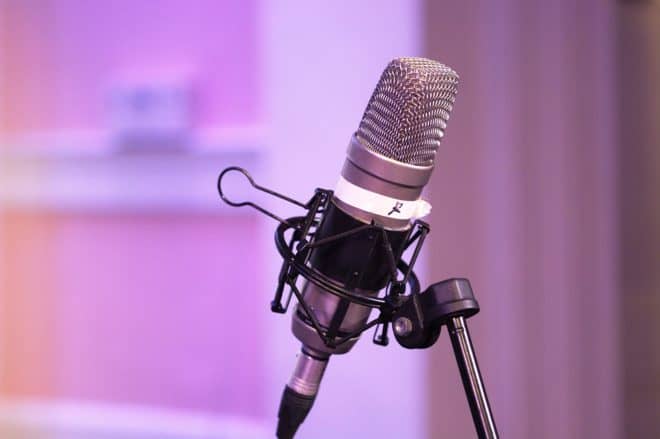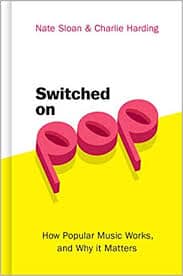Why your podcast definitely needs a website

You are t-minus 60 minutes to go to podcast launch. You’ve checked the first episode for errors numerous times. You’ve checked the file formatting and uploaded. Months, even years were spent in preparation and your first podcast goes live.
So why do I want to discuss a website? You have the podcast. A website is a money-drain and time-suck you don’t need, right?
Wrong. In fact, well-designed and content-rich websites can drive considerable traffic to your podcast. Here are 10 reasons why new and established podcasters should have a website and ensure that it is robust enough to support the podcast, garner more listeners, attract and retain sponsors and monetize the podcast either through donations, product extensions or ad-supported revenue.
Related reading: best podcast hosting services
1. Place To Donate
For those podcasts –and it is still a majority of podcasts – that rely on listener donations, a website is the logical place to attract listeners for donations. Podcasters will need to contract with a payment system. Options include PayPal, Stripe, Braintree and Amazon Payments among many other solid platforms. The keys here are reliability and cost.
2. Email List
One tried-and-true method for developing a devoted listener base is to harvest the emails of your listeners and then market the podcast and its latest episodes. Established podcasts like 99% Invisible WNYC’s On The Media and NPR’s Planet Money collect emails and connect via email with listeners to alert them about upcoming episodes.
3. Newsletter
Established podcasters have shown significant benefits from using the newsletter as a communications and connection device to listeners. The email list is often the method for distributing the newsletter.
4. Episode Roster
Even though most podcast apps show a comprehensive list of a podcast’s episodes, a website can reveal more comprehensive show notes and can often show a complete roster of a podcast’s episodes, especially if it’s been in production for years. In some cases, like with the Brain Science podcast, a premium fee is charged for access to archived episodes since it is 14 years old.
5. Bios about the hosts
Typically, podcast hosts focus on the topic of their podcast – movies, business startups, fiction, true crime, etc. – so the biographical background of the hosts or hosts can provide better insight into the podcast and build a stronger connection with listeners.

For example, the website for the Spectacular Failures podcast reveals this bio of Lauren Ober, that includes, “In a life before hosting, Lauren was an award-winning public radio reporter, producing stories for outlets like NPR, 99% Invisible and Criminal. Lauren once won a regional Emmy and is hoping to nab the elusive regional EGOT before she dies.”
On the Curiosity Daily podcast website, the bios on hosts Cody Gough and Ashley Hamer include Gough’s experience on-air on Chicago’s WGN Radio and as the host of the GonnaGeek Podcast, while Hamer is a well-credentialed science writer with a startling blend of other activities – saxophonist, world-class marathon runner and cat person.
6. Transcripts of the episodes
There are podcasts that post the entire transcript of their episodes on their website. Gimlet’s Science Vs is a prime example and it makes sense that science podcasts would post such transcripts so that listeners could read sometimes complex scientific information instead of just hearing the words on the podcast. Moreover, the transcript can provide supporting documentation.
The Brain Science podcast – which focuses on neuroscience – publishes episode transcripts for premium subscribers who are neuroscience geeks.
For some podcasters, actually reading podcast transcripts is a great way to learn the craft of writing and refining their own episodes.
7. Product Extension
Product extension for podcasters typically means books. A growing number of podcasts have authored books that are an extension of their podcasts, including Switched on Pop by Nate Sloan and Charlie Harding.

Monica Reinagel, the host of QDT’s Nutrition Diva has an impressive list of books that are a natural extension of her podcast topics, with titles such as The Inflammation Free Diet Plan, How to Win at Losing and 5 Secrets for Eating Well.
The popular Last Podcast on the Left has a new book out in April – Last Book on the Left – naturally capitalizing on its surging listener audience.
8. Merchandise Shop
Selling “merch” is a no-brainer for podcasters. The margins are high and often the inventory investment is not substantial. Branded t-shirts, hats, and coffee mugs are the popular items that always seem to sell briskly.
For example, the Last Podcast on the Left podcast has an extensive merchandise store that sells briskly.
The New York Times’ The Daily podcast offers a t-shirt as does the Ringer network of podcasts and Slate.
Make sure the merchandise is fairly priced, made from quality materials and the purchase process on the website is easy and fast.
9. Subscribe
Although listeners can easily subscribe via their phone app, the website offers listeners another way to subscribe. In fact, some podcasters report that as many as 20 percent of their subscribers come from their website.
10. Leverage Live Events
Here is a perfect example. Joe Rogan has one of the most popular podcasts in the space and since he is a stand-up comedian, he sells tickets to his comedy shows on his website. Slate podcasts regularly sell tickets to live events, especially Slate Live, a mega-event for them in which multiple podcasts do live events in one city.
Final thoughts
Building a website no longer requires hours of HTML5 training obsessing about tags. Instead, there are easy-to-use website builders that only require an eye for pleasing design, a strong sense of user-focused navigation and content organizational skills.
Options for website builders include Wix, Weebly, Squarespace and all three often run discounts.
While not exclusively web-based, social media is also a critical component for podcast visibility. Recent research shows that Facebook followers of a podcast seem to be the most loyal and the most ardent supporters.
While some who enter the podcast space have modest goals and are happy with a reasonable level of success, many others launch their podcast with the dream that it can their podcast can escape earth’s gravity and achieve orbit around the podcast media format.
Certainly, a website to support and grow your podcast can be a valuable tool that can be inexpensive to set up and manage and can strengthen your listener base and build brand loyalty.
If nothing else, you can post your bio on the website and finally get to mention that trophy you won for being on the Travel lacrosse team a few years ago.













Comments
Comments are closed.